- Home
- Catherine Coulter
Warrior's Song Page 3
Warrior's Song Read online
Page 3
Graelam pulled out of her and stood there a moment, breathing hard with his release. There was blood on her legs and on him as well, her virgin’s blood. But she hadn’t broken.
Neither had her friend. He turned slowly to face Chandra. She wasn’t yelling at him now. Truth be told, he had expected her to be cursing him to the beams of her bedchamber. But no, she was on her knees, her head bowed, and he watched her vomit. His men had released her, jerking back, staring down at her, not knowing what to do. She remained kneeling on the floor, her body heaving until there was nothing more in her belly. Graelam walked to the small table and poured some water from a carafe into a goblet. He came down on his haunches in front of her. “Wash out your mouth.”
She took the goblet and did as he bade. She spat the water out into the rushes. Then she drank deep. She was shaking, couldn’t seem to stop it. She felt a vast emptiness, and it alarmed her because she didn’t understand it. But it was deep, so deep inside her, it seemed an integral part of her. What he had done, so passionless it was, so matter-of-fact, with no purpose but to dominate, to gain his way. And the humiliation for Mary, forced to accept him, and she’d let it happen. Because of her, now Mary was no longer a maid. She was used.
“Chandra.”
She raised her face at the sound of his quiet voice. Gone was the deadening blankness. He was naked, standing right in front of her and she saw Mary’s blood on him. She moved faster than he could have imagined, grabbing for his sword that lay beside his clothes and his armor, and the hilt was in her hands before he managed to wrench it from her. She hooked his leg in a wrestler’s grip and drove her fist hard into his naked groin.
Graelam’s legs buckled. He heard his men, but yelled for them to stay back. He lurched to the side, managed to grab her thick braid, and jerked her backward to land on top of him. He couldn’t believe the pain, knew it would get worse, and it did, and he closed his eyes against it even as he held her so tightly against him that he could feel her ribs pressed into his chest.
In that instant, he realized that if he were as intelligent as he’d always been told he was, he would drag himself and his men from Croyland and send his blessings to God that he had survived. He was a fool to force this woman to wed him. He had no doubt that she would try to bring him low. He wondered then if he would ever tame her, ever make her accept him. He imagined fighting her in bed, wondered if he would have to tie her down, and knew then that he would indeed have to.
Why had she vomited? Merely watching him take her friend had sent this proud, arrogant girl to her knees, retching in the flower-scented rushes? His pain slowly receded, almost too slowly for a man to bear, and finally he said, “I will have to think about your payment for that.”
“What will you do? Kill me? Well, then, you savage, do it now.”
CHAPTER 3
He didn’t kill her, of course. What he did was make his men hold her again while he slowly dressed himself. He left off his armor, saying, “I will go to Lord Richard’s bedchamber. I will make use of his clothing.” And then he’d smiled, for the pain was gone from his groin and he knew he would live again. Once again, he was filled with optimism and determination. He had worked too hard to get her. He would have her, no matter the cost. He had absolutely no doubt that she would kill him if she had the chance. It didn’t worry him. It fascinated him.
“As for you, Chandra, you will either agree to wed me, whether or not I find your brother, or I will simply take you back with me and you will live as my mistress until you agree to marry me. I know you—”
He never finished, for just then the bedchamber door burst open and Abaric yelled even before he saw Graelam, “We have them!”
Lady Dorothy and John came stumbling into the bedchamber, a half dozen of Graelam’s men behind them.
“We have them,” Abaric said again, and rubbed his hands together.
Chandra stared at her mother, then at John. She couldn’t believe it, just couldn’t, yet here they both were, standing right in front of her, no torn clothing, no signs of any struggle. She said slowly, feeling her heart beat with slow, deadening strokes, so loud they were, “How is this? You were well hidden. How did they find you, Lady Dorothy?”
Why, Graelam wondered, did she call her mother Lady Dorothy?
She was a gaunt woman, as tall as her daughter, but the life seemed sucked out of her. Her hair, once a rich black, was streaked with coarse gray strands, her mouth seamed so tightly, it was only a thin, pale line. She looked, he thought, as unforgiving as his own witch of a mother. She looked as though she’d never had an ounce of joy in her life and that she would do her best to see that no one around her had any joy either.
Lady Dorothy shook off the hands of the men behind her. She looked first at Graelam, then at Mary, who was standing beside Chandra’s bed, her face pale, looking blank and stupid. Lady Dorothy sniffed the air. The room smelled of sex. But how could that be? Both Mary and Chandra were fully clothed, as were the men.
Lady Dorothy turned to Chandra and her face hardened. Filthy she was, boar’s blood all over her, her hair matted to her head with sweat. Lady Dorothy said, her chin up, “You look disgusting.”
Graelam stared at her, not believing what had come out of her mouth, but Chandra said only, “I know. It doesn’t matter. Who found you?”
Lady Dorothy shrugged and said, quivering at that smell she still believed was sex, “No one. I did not like it in that small dark room. I never have. I’ve told your father many times that it is too rude a place for me ever to remain for more than a few minutes. There were rats, the sound of men’s boots clattering overhead, yells and cursing. John fretted. I did not wish him to be frightened. I did not wish to dirty my gown.”
“Because you did not like the room, because you did not want John to whine, because you did not wish to soil your gown, you broke Father’s rule? You actually came out by yourselves, of your own free will? You simply chose to disregard my father’s orders?”
“Your father isn’t here,” Lady Dorothy said. “Even though you like to pretend that you are the one who is important here, you are not. It is my responsibility to see to the castle. Just look at you, a dirty hag, here in your bedchamber with this man, nearly alone with him. Why is there the smell of vomit?”
“I was ill,” Chandra said. “It doesn’t matter.”
“No, it doesn’t. I hope you weren’t ill in front of our guest. Why ever did you bring him to your bedchamber? You should be seeing to his comfort. By all the saints, Chandra, you aren’t good for anything, must less protecting your father’s precious holdings. John, come here.”
The boy, small and slight, moved to stand beside his mother. He was, Graelam saw, looking over at his sister, and there was a smirk on his small face. He looked very pleased with himself. Graelam wanted to pick him up and throw him out one of the narrow windows. What was going on here?
“I didn’t like that room, just as Mother told you,” John said, and he put his hands on his hips, daring his sister to say something. “Who is this man? Is he really a guest and not one of father’s enemies?”
Chandra said, still not wanting to believe what they’d done, “You really came out of hiding because you decided you wanted to?”
“I am the mistress here, not you,” Lady Dorothy said. “I will do as I please. Now, answer your brother. Who is this man?”
Mary made a very small sound in her throat and slowly fell to the floor.
“What is wrong with her?” Lady Dorothy asked to no one in particular.
“She seems to have fainted,” Graelam said. He walked to Mary, picked her up and gently put her on Chandra’s bed, the bed he would share with Chandra this very night. When he straightened, he said, “I am Lord Graelam de Moreton of Wolffeton in Cornwall, my lady. I am here to wed your daughter.”
Lady Dorothy just looked at him.
John said, “Chandra doesn’t want to marry, ever. Everyone knows that. She won’t marry you, will she?”
Lad
y Dorothy said slowly, tightening her fingers on the boy’s shoulder, making him wince, “Welcome, my lord. I am pleased to give my precious daughter over to you, a great lord, who will see that she becomes what she is meant to become, if it isn’t, of course, too late.”
Chandra felt such pain that she wanted to fold in upon herself, but she couldn’t. She heard John say, “It’s about time she was gone from Croyland. It’s mine, Mother, just as you’re always telling me, not hers. I’m the important one here, not her. I don’t want her here.”
“That’s right, my love. Soon you will rule Croyland, as you were always meant to, with no more interference from your sister. Now, Chandra, I will see that the servants prepare a lovely wedding feast. I will see to Lord Graelam’s comfort since you have not bothered. Now, bathe the filth off yourself. My lord, I am pleased that you have come.”
Lady Dorothy actually gave him her hand. He bowed low over it, then watched her walk out of the bedchamber, the boy swaggering beside her. He turned to Chandra, his forehead furrowed in thought, his voice calm. “It is just as well that you will soon be gone from here. I should not have liked to have her for my mother, although my own was just as vicious. Ah, Mary is coming around. I will speak to Father Tolbert now. Then I will go to your father’s bedchamber. Prepare yourself, Chandra.”
He paused at the doorway, saying over his shoulder, “I hope you will now agree to wed me. I should hate to be forced to take that boy back with us to Cornwall, although several good thrashings just might improve him, something it appears your father hasn’t done.”
“My lord, you’ll not believe this, but Croyland has been taken.”
Lambert, tall, skinny as a tent pole, nearly fell off his horse, scrambling not to lose his balance as he ran to Jerval. “I didn’t believe it myself at first, but one of the villagers told me to keep clear of the castle because Lord Graelam de Moreton and thirty of his men hold it now.”
“This is madness,” Jerval de Vernon said slowly, trying to understand. “How is this possible?” He was tired. He and his twenty men had ridden for three days to get to Croyland, and now, Lord Richard had somehow been overcome?
“Lord Richard isn’t there,” Lambert said, still panting from his wild ride back to their campsite in a protected inlet by the water. The waves made a gentle, rolling sound, constant and low, and the sun was brilliant overhead. “It was a trick, a ruse. The villager told me that Lord Richard had caught a man skulking about, and the man finally admitted that he was scouting around for Cadwallon, that Welsh bandit. He was planning a surprise attack on Lord Richard when he and his men left Croyland to hunt. Lord Richard took his men to catch the bandit. But Cadwallon is nowhere about. It was Graelam de Moreton who sent the spy there. Another villager said that de Moreton caught Lady Chandra out hunting with some of her men. It was over then. Another villager said that he held a knife to her back and told them that he would slit her throat if they didn’t lower the drawbridge. It was quickly done.”
“But why would he do that?” Sir Mark asked, slapping his leather gloves against his thigh. “He must know that he could never hold Croyland. Why?”
Lambert said, “He doesn’t want Croyland. He came because he wants Lady Chandra. He plans to wed her this very night, done by Croyland’s own priest.”
“By all the saints’ buried sins,” Jerval said, grinning like a madman, “this is something that will surely invigorate the blood.” Then he laughed and rubbed his hands together. “The little princess got her comeuppance, did she?” He laughed again. “My father tells me that she is known for her pride—bred, he claims, into her very bones. Her valor as well, though that makes little sense. Well, I suppose that we must do something about it. It wouldn’t do to have Lord Graelam wed her, not when we have ridden three days to get here ourselves so I could marry her.”
“You know you don’t have to wed her, Jerval,” Sir Mark said. “Your father just asked you to look her over.”
Jerval just smiled. His father, Lord Hugh, was eager for the alliance. Camberley was close enough to Croyland to provide mutual protection, and his father had raved on and on about her beauty after he’d seen his only son back away when he spoke of her fierce pride, her bravery. No woman, he’d said again and again, was as beautiful as Chandra of Croyland.
Jerval didn’t believe that for a moment, but he had agreed to come and see her for himself. This glorious creature, according to his father, had hair golden as a sheaf of wheat ripening under the summer sun, flowing hair spun into minstrel’s verses, and ah, her eyes—the color of the sky in early July when it was warm and still and so clear it made you weep. What tripe. There was no female in the known world who looked like that. Of course, his father had seen her only once when he had been visiting Croyland some four years before. He shook his head. His father really wanted the alliance. Jerval had a very bad feeling about her.
On the other hand, Graelam de Moreton had taken Croyland just to get her. Perhaps his father had somehow spread the same exaggerations to Lord Graelam, and he’d believed them.
Why had Lord Richard left so few men to guard the castle? Why had she left to go hunting? Her small, dainty falcon was bored? Didn’t she have a brain? He didn’t want a stupid wife. No matter, he would save her from her own folly. Then he would very likely go home without her, pleased to escape.
Jerval left his men to their talk and walked down on the beach. He watched the waves, low, gentle, fan out onto the shore, then slowly fold back. He watched the sun lower in the sky. Mark looked after him as he said to Lambert, who was scratching his ear, “Now, he goes to think and plan. What do you say, Lambert? How long will it take him to come back with a strategy?”
“Ten minutes,” Lambert said. “No longer. It’s not all that difficult a problem.”
“Nay, I disagree. It’s a knotty problem.”
Exactly ten minutes later, Jerval called out as he strode back up from the beach, “Let’s go. I have a plan to save the little princess.” He looked very pleased with himself.
Mark dug a coin out of his tunic and tossed it to Lambert, who bit on it out of habit, and chuckled. Soon all the men were laughing.
Jerval frowned at them as he mounted his horse. “What is the jest?”
Crecy, wearing his best wine-colored robe, which really required very little precious material since he was so short, walked beside Chandra down the deep stone stairs into the great hall. He saw that Graelam stood in front of her father’s huge chair, with its high carved back and its lion’s-head posts, waiting for her. On his left sat Lady Dorothy, John next to Graelam’s man, Abaric.
“He is an honorable man,” Crecy said in his low, soothing voice, knowing there was no hope for it now. “He will not mistreat you. You will not have to protect yourself from his violence, for there will be none. He will treat you well, if you will but allow him to. He admires you. Give over, mistress.” He paused a moment, alarmed by her pallor. “Cornwall is a beautiful land, harsh along its northern coast, but just a few miles to the south there are palm trees and the water is balmy. It will please you. His holding, Wolffeton, is magnificent.”
“I have no wish to go to Cornwall.” She shook her head. “I don’t understand. Why me, Crecy? A powerful lord like Graelam de Moreton shouldn’t select a wife who brings him nothing, a wife who would carve out his heart if she had the chance. He must know that I will always hate him, that I will never bow to him.”
Crecy said, “That you, a girl, would have the skill and the courage to actually fight him, to kill him if you were the more skilled, the more ruthless—it fascinates him. Two years ago when you were but sixteen, a wandering minstrel came to Wolffeton. It was Henri of Agris. Do you remember him? He was a young Frenchman who worshipped you.”
“Yes, I remember him. He was annoying with all his drowsy-eyed looks, but he did sing sweetly.”
Crecy thought that Henri was a credulous puppy, beyond annoying, what with all his sighs of adoration, making him miss his footing and trip into
piles of muck as he followed the mistress around, but no matter. “After he left Croyland, he went to Cornwall. He sang of you in vivid verse to Lord Graelam, painting you as the virgin warrior of great beauty who rode and hunted like a man. He painted you as a woman more desirable than any lady in the king’s court, a woman without a woman’s wiles, a woman who held honor dear.”
“I look like no warrior now,” she said, bitterness hard and flat in her throat.
“No,” Crecy said, his voice at its very driest, “you do not.” She was dressed in a pale yellow silk gown that made her look soft and white, and very much a lady. Her father had brought the fabric with him from London for her birthday, just three months before, and had it sewn for her to his own directions. This was only the second time she had worn the gown. Its arms were long and tapered at her wrists; a woven yellow belt hung loose at her hips. Her hair fell halfway down her back, nearly dry from its washing. There was no more stench of boar’s blood; even the bits of blood and dirt from beneath her fingernails were gone.
Crecy cleared his throat, ran a short, thick finger over his sparse beard, and said, “When Henri was there two years ago, Graelam’s wife, a whining lady from the French court, had just died birthing a stillborn child. Graelam had wed her to please his father and to fill his father’s coffers. But then his father died, followed by both his wife and the babe, and he was his own man and the lord of Wolffeton. He now wants a wife like none other in all of England. He wants you.”
Chandra said, “The man is an idiot to believe anything that a minstrel would put to verse.”
“He just told me a while ago, whilst he was dressing, that if he could find Henri, he would give him a handful of gold. Your beauty came as a surprise to him, for, like you, he said that only a fool would believe a minstrel’s weeping verses.”

 The Cove
The Cove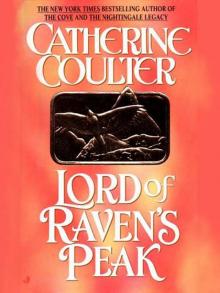 Lord of Raven's Peak
Lord of Raven's Peak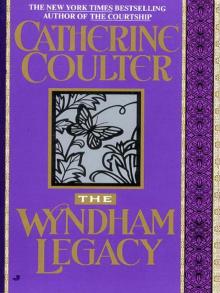 The Wyndham Legacy
The Wyndham Legacy The Strange Visitation at Wolffe Hall
The Strange Visitation at Wolffe Hall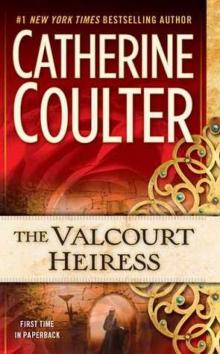 The Valcourt Heiress
The Valcourt Heiress Bombshell
Bombshell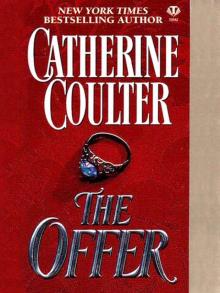 The Offer
The Offer The Edge
The Edge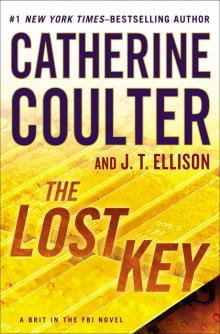 The Lost Key
The Lost Key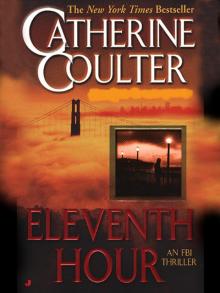 Eleventh Hour
Eleventh Hour Blindside
Blindside Devil's Daughter
Devil's Daughter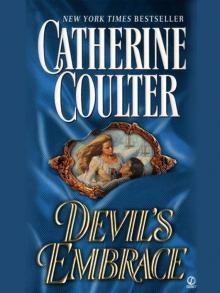 Devil's Embrace
Devil's Embrace Earth Song
Earth Song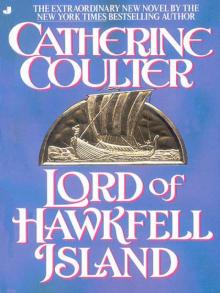 Lord of Hawkfell Island
Lord of Hawkfell Island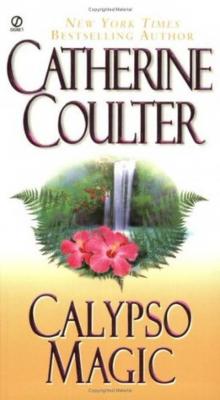 Calypso Magic
Calypso Magic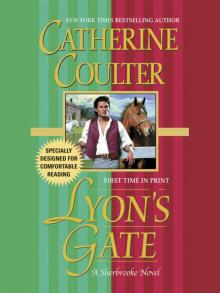 Lyon's Gate
Lyon's Gate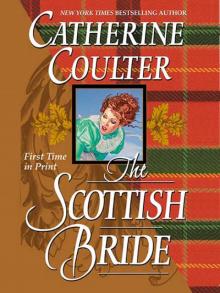 The Scottish Bride
The Scottish Bride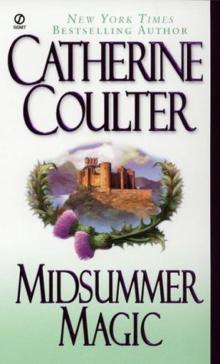 Midsummer Magic
Midsummer Magic Split Second
Split Second Enigma
Enigma Blowout
Blowout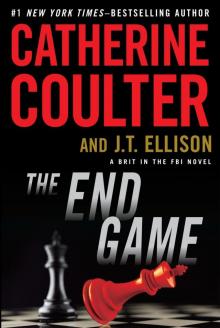 The End Game
The End Game Double Take
Double Take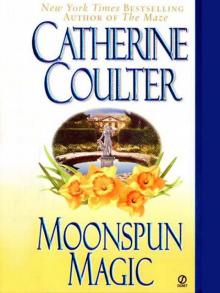 Moonspun Magic
Moonspun Magic The Courtship
The Courtship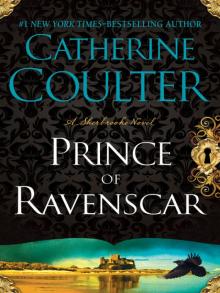 Prince of Ravenscar
Prince of Ravenscar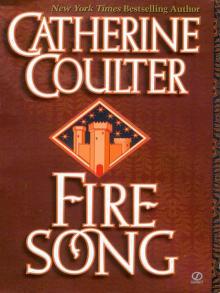 Fire Song
Fire Song Wizard's Daughter
Wizard's Daughter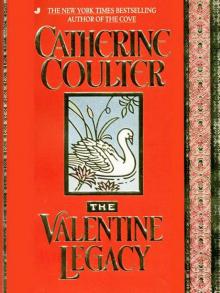 The Valentine Legacy
The Valentine Legacy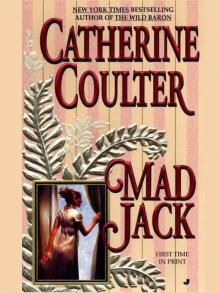 Mad Jack
Mad Jack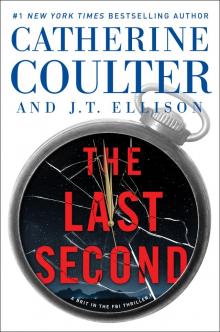 The Last Second
The Last Second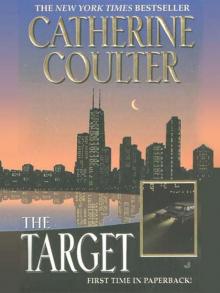 The Target
The Target Backfire
Backfire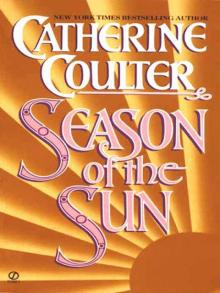 Season of the Sun
Season of the Sun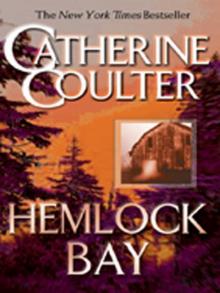 Hemlock Bay
Hemlock Bay Insidious
Insidious Riptide
Riptide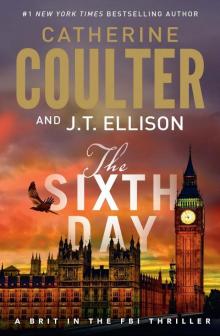 The Sixth Day
The Sixth Day Secret Song
Secret Song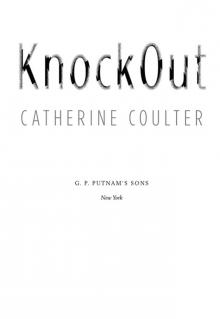 KnockOut
KnockOut Jade Star
Jade Star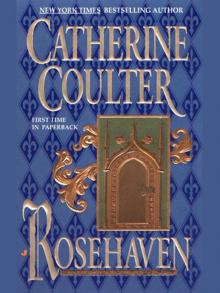 Rosehaven
Rosehaven The Hellion Bride
The Hellion Bride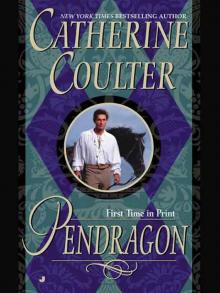 Pendragon
Pendragon Vortex
Vortex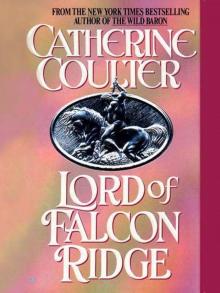 Lord of Falcon Ridge
Lord of Falcon Ridge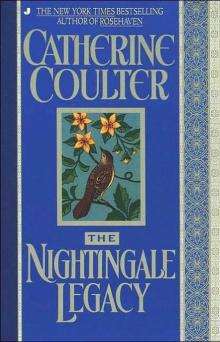 The Nightingale Legacy
The Nightingale Legacy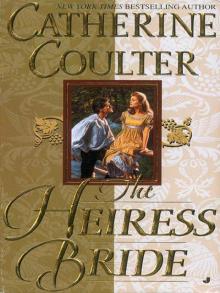 The Heiress Bride
The Heiress Bride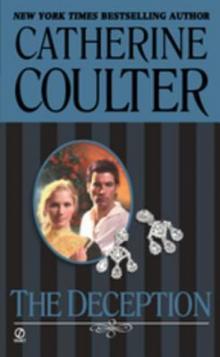 The Deception
The Deception The Maze
The Maze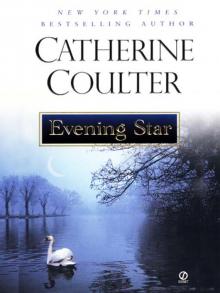 Evening Star
Evening Star Wild Star
Wild Star The Final Cut
The Final Cut Paradox
Paradox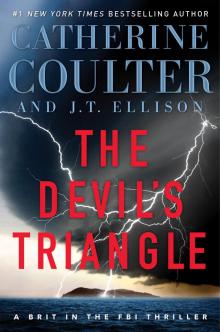 The Devil's Triangle
The Devil's Triangle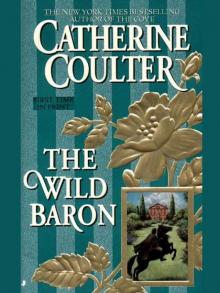 The Wild Baron
The Wild Baron Point Blank
Point Blank Labyrinth
Labyrinth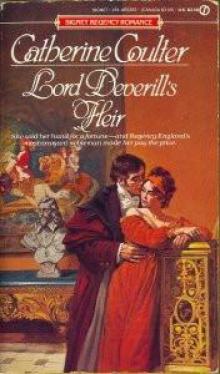 Lord Deverill's Heir
Lord Deverill's Heir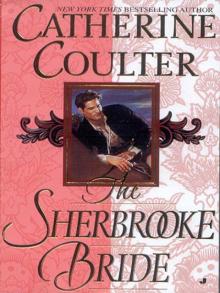 The Sherbrooke Bride
The Sherbrooke Bride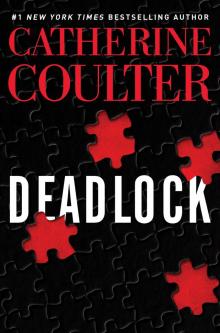 Deadlock
Deadlock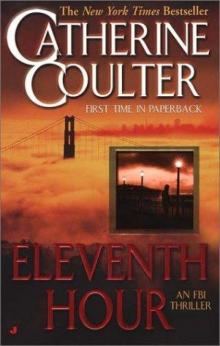 Eleventh Hour f-7
Eleventh Hour f-7 Power Play (An FBI Thriller)
Power Play (An FBI Thriller)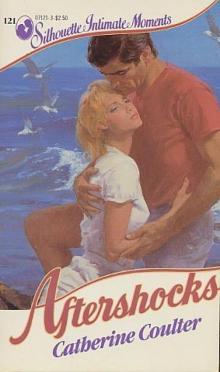 Aftershocks
Aftershocks Sherbrooke Twins tb-8
Sherbrooke Twins tb-8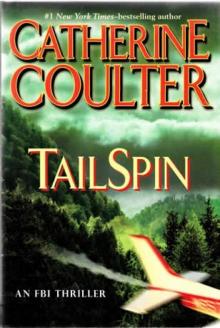 Tail Spin ft-12
Tail Spin ft-12 The FBI Thrillers Collection
The FBI Thrillers Collection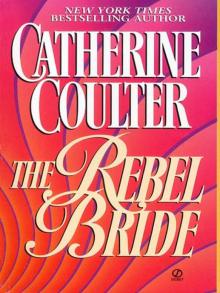 The Rebel Bride
The Rebel Bride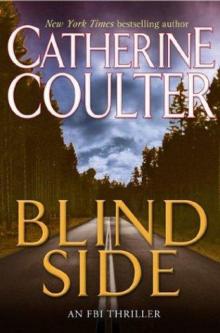 Blindside f-8
Blindside f-8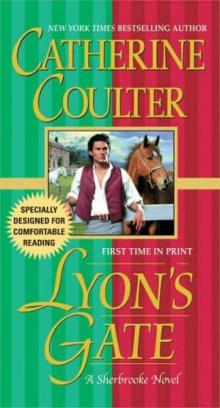 Lyons Gate tb-9
Lyons Gate tb-9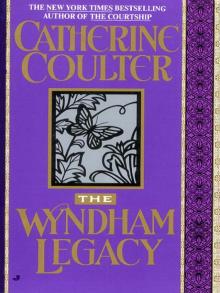 Wyndham Legacy
Wyndham Legacy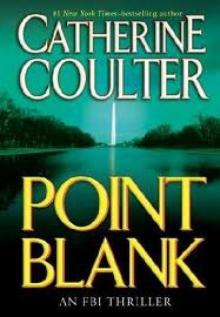 Point Blank f-10
Point Blank f-10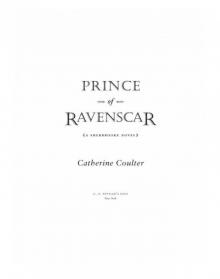 The Prince of Ravenscar
The Prince of Ravenscar Twice Dead
Twice Dead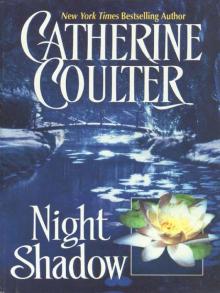 Night Shadow
Night Shadow Night Storm
Night Storm The Beginning
The Beginning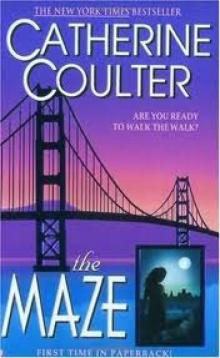 The Maze ft-2
The Maze ft-2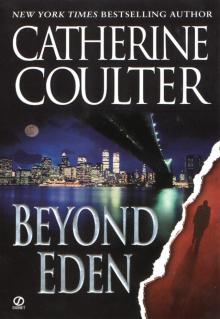 Beyond Eden
Beyond Eden The FBI Thrillers Collection: Vol 11-15
The FBI Thrillers Collection: Vol 11-15 FALSE PRETENSES
FALSE PRETENSES The Edge f-4
The Edge f-4 Bombshell (AN FBI THRILLER)
Bombshell (AN FBI THRILLER)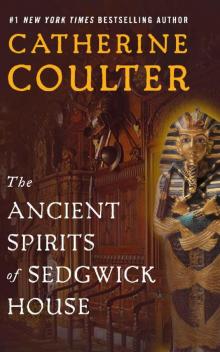 The Ancient Spirits of Sedgwick House (Grayson Sherbrooke's Otherworldly Adventures Book 3)
The Ancient Spirits of Sedgwick House (Grayson Sherbrooke's Otherworldly Adventures Book 3)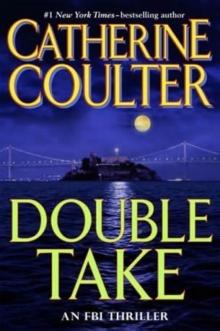 Double Take ft-11
Double Take ft-11 The Heir
The Heir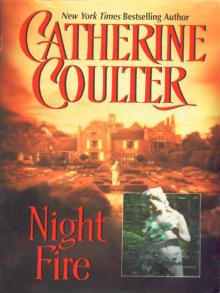 Night Fire
Night Fire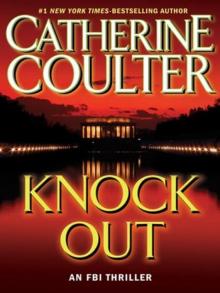 KnockOut ft-13
KnockOut ft-13 Hemlock Bay f-6
Hemlock Bay f-6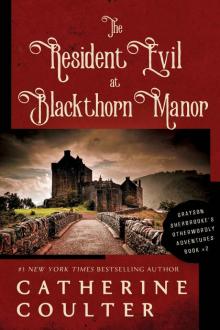 The Resident Evil at Blackthorn Manor (Kindle Single) (Grayson Sherbrooke's Otherworldly Adventures Book 2)
The Resident Evil at Blackthorn Manor (Kindle Single) (Grayson Sherbrooke's Otherworldly Adventures Book 2) Blowout ft-9
Blowout ft-9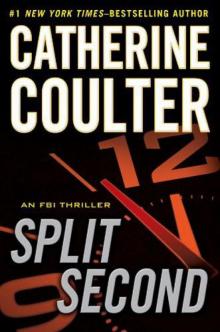 Split Second f-15
Split Second f-15 The Sherbrooke Series Novels 1-5
The Sherbrooke Series Novels 1-5 Impulse
Impulse Paradox (An FBI Thriller Book 22)
Paradox (An FBI Thriller Book 22)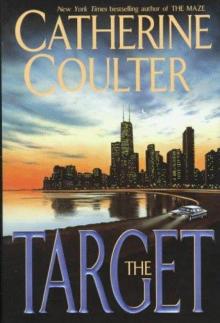 The Target f-3
The Target f-3 Backfire fst-16
Backfire fst-16 Born To Be Wild
Born To Be Wild Wizards Daughter tb-10
Wizards Daughter tb-10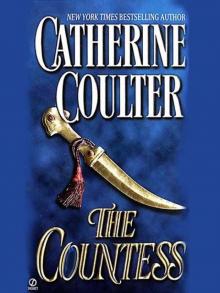 The Countess
The Countess